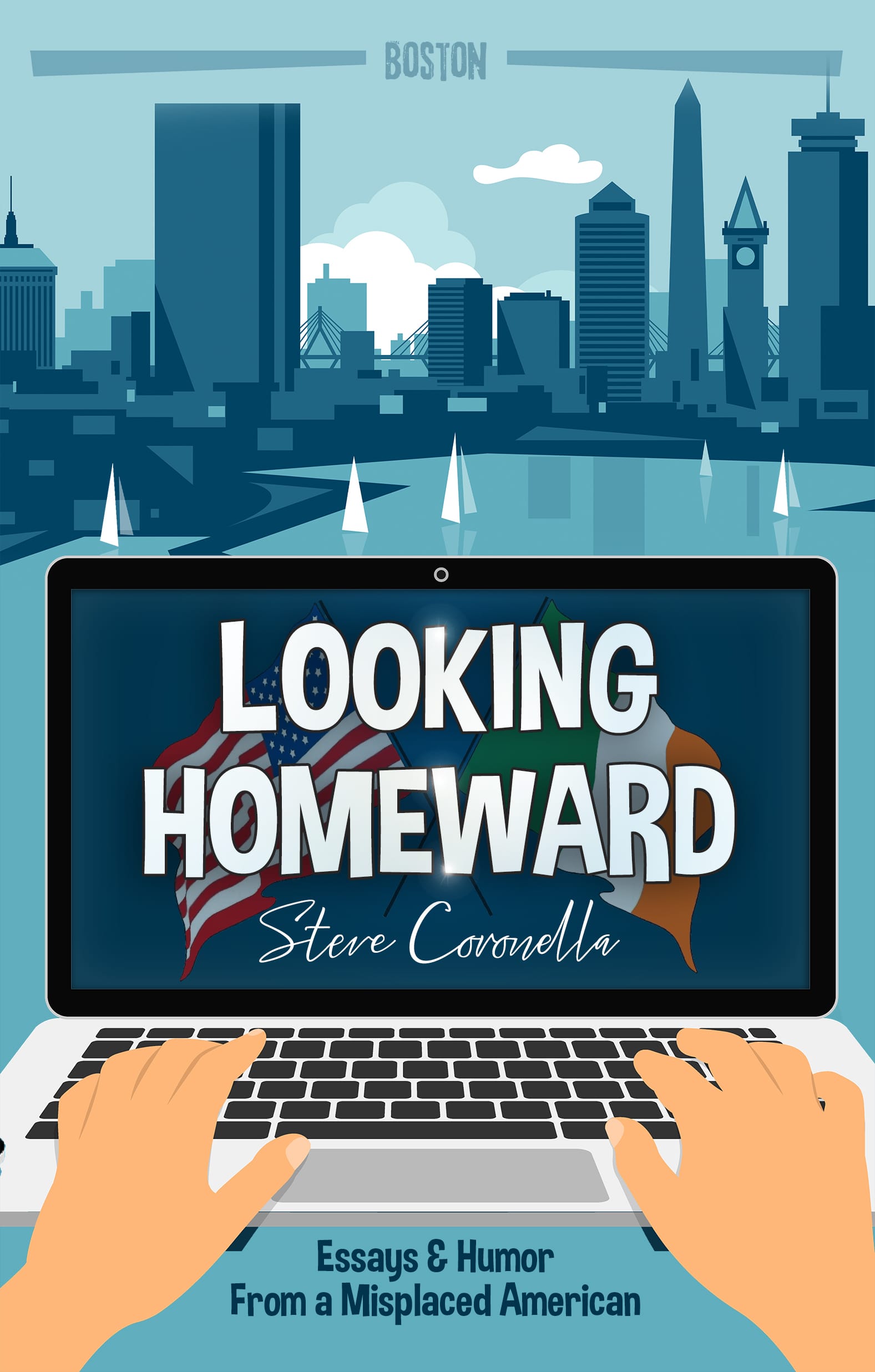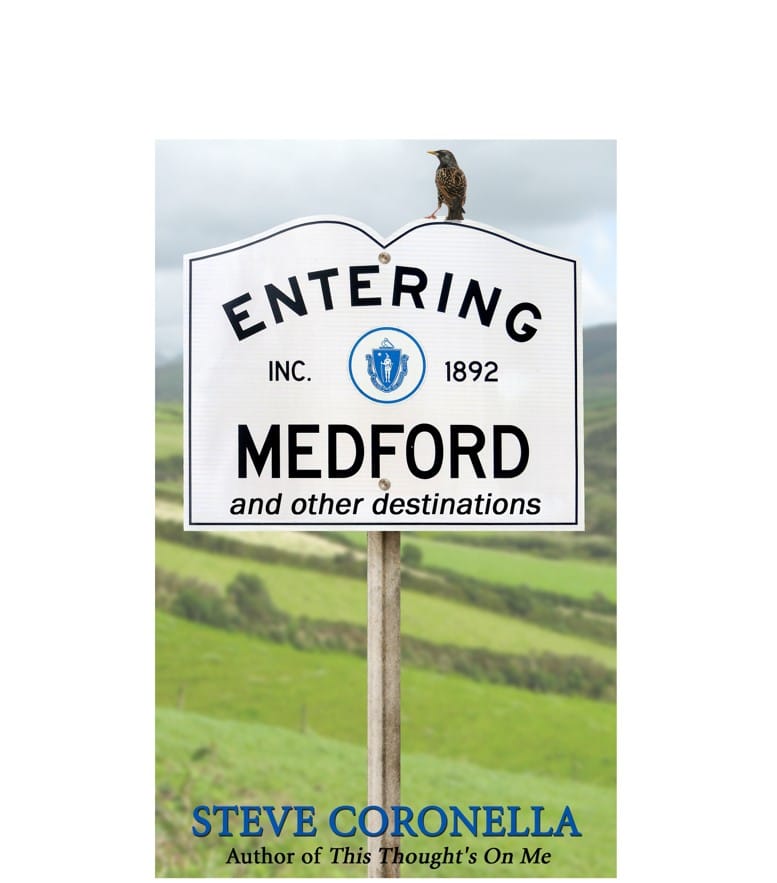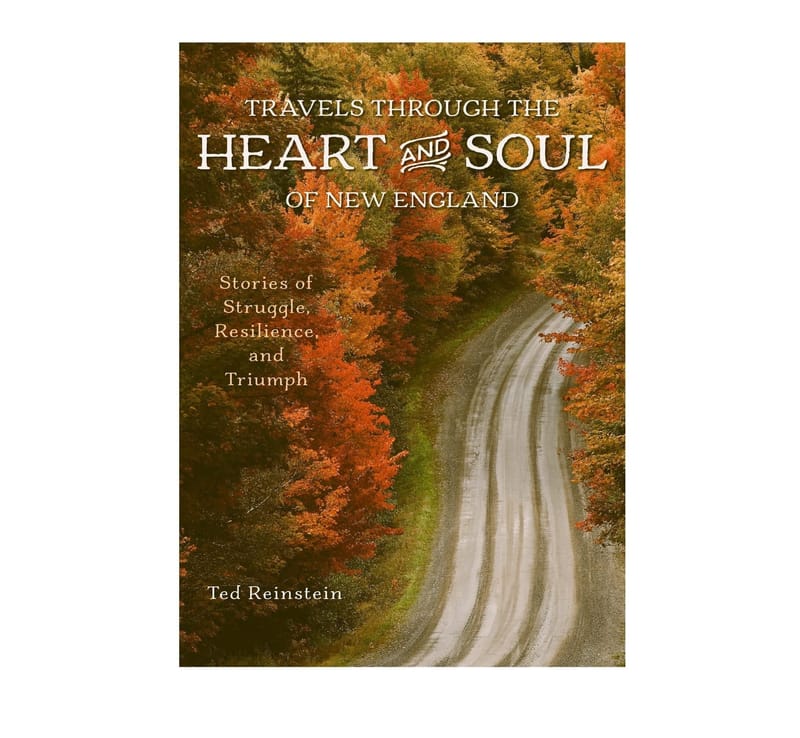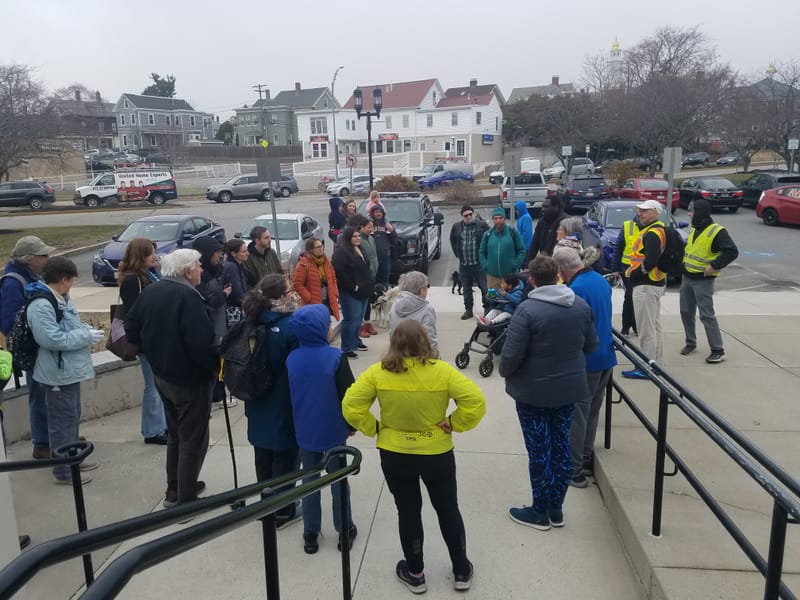Expat Medford writer brings his dual identity to life in two books
With humor and affection, Steve Coronella explores his early life in Medford and his relocation to Ireland in the 1990s.
With humor and affection, Steve Coronella explores his early life in Medford and his relocation to Ireland in the 1990s.
In two recent paperback publications — “Entering Medford - And Other Destinations” and “Looking Homeward - Essays & Humor from a Misplaced American” — Steve Coronella brings to life his dual identity as a Boston area native and now U.S. expat in Dublin.
In a style all his own, Coronella recalls his 1970s Medford upbringing and chronicles an eventful 21st-century Irish afterlife featuring marriage and fatherhood.
“I’d like to think I take everyday occurrences and give them universal appeal,” Coronella says. “I also enjoy being informative in a humorous and entertaining way. Bill Bryson would be one of my favorite writers, along with fellow Medford boy Paul Theroux.”
In the Q&A session below, Coronella reveals more.

Given your Italian surname and being a lifelong Medfordite, how did you connect with Ireland?
Yes, my family knew only Medford when I was growing up and our family home is still, well, in the family. I graduated from Medford High in 1977 and grew up in an ordinary neighborhood in the lower Hillside area, I guess you’d call it, between Tufts and the Mystic River.
My grandparents on my mother’s side came from Cork, Ireland, and my father’s parents set sail from Augusta, Sicily. They all arrived in Boston around 1930. I visited Ireland for the first time in 1980 with my mother and my grandmother, who had several siblings still living around Cork.
After that, I came over fairly regularly on my own during the 1980s, for months at a time. Ireland and I just seemed to click. I’ve been a walker all my life, and Ireland in the 1980s was the perfect place to just wander, very different from what I was used to around Boston but comfortably familiar as well.
I also used Ireland as a launch point for a visit to Sicily in 1986, to drop in unannounced on my father’s relations in Augusta. I write about that backpacking adventure in “Entering Medford.”
You write about your dual identity, as a Medfordite/Bostonian and now a Dubliner. How did that come about?
Medford was a much different place when I was growing up. Back then, the city had a rather unflattering reputation, which I also comment on in “Entering Medford.” Today it seems to be an attractive place to live. Sort of Cambridge (or Winchester) once removed. Ireland has changed even more in the last 30 years. In fact, it seems like I’ve lived in three different countries — all named Ireland — over that time. I write about this transformation in “Looking Homeward.”
Before moving to Dublin, I also lived for six years on Cape Cod, starting off in a busy “commune” of Irish J1 college students in the summer of 1986, which in a very roundabout way is how I was introduced to my wife.
I write about this experience in one of my previous books, “This Thought’s On Me.” But the most transformative events in my life were yet to come: a move to Ireland in the early 1990s, then marriage and fatherhood. So, yes, it does feel at times like I have a split personality.

What motivated you to write about your experiences?
Writing is a way of trying to make sense of the world and your place in it. That definitely applies in my case. Plus, I've always been a fan of newspaper columnists, so when papers like the Boston Globe, Cape Cod Times, Providence Journal and Irish Times — not to mention the Medford Transcript — were receptive to my writing, I jumped at the opportunity to work in that form.
As a result, I’ve now assembled a trilogy of sorts — my own informal memoir — that I hope my son will value in years to come, as a window into my world and his as he was growing up.
So what’s your basic pitch?
“Looking Homeward” and “Entering Medford” offer vivid snapshots of a past time in Medford and Boston that a lot of readers will remember fondly. And the changing face of Ireland, of course, features in my writing. Which should also interest a lot of local readers.
Both books are engaging and thoughtful, with several humorous columns and satirical sketches reminiscent of Russell Baker and Art Buchwald — two names people of a certain age will recognize.
A lot of memoirs are about overcoming extreme hardship or traumatic childhoods. I experienced nothing of the sort. At the same time, I had a very interesting upbringing in Medford. And when you sit down and write about it, you realize that an ordinary life can provide some pretty good material too.





